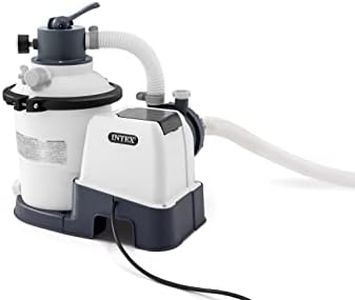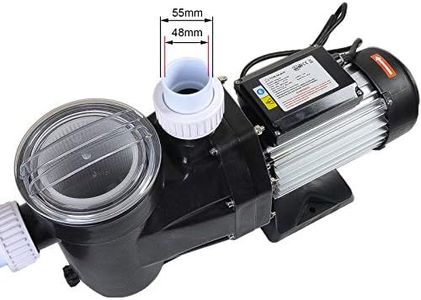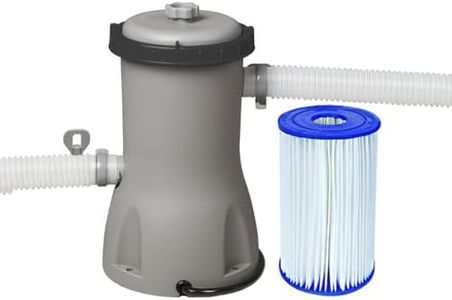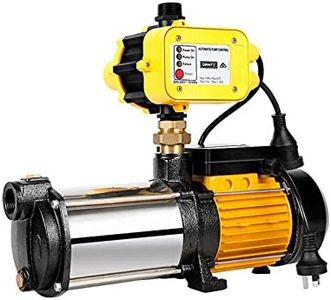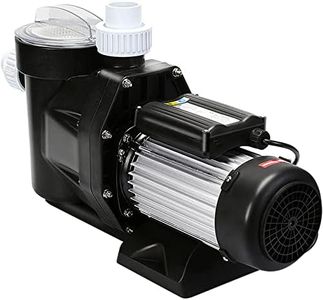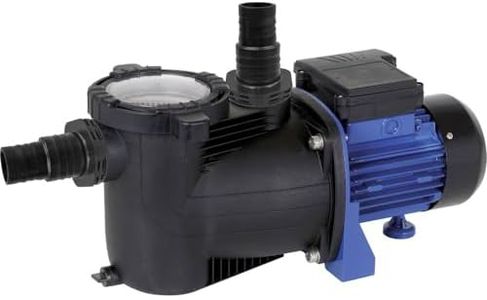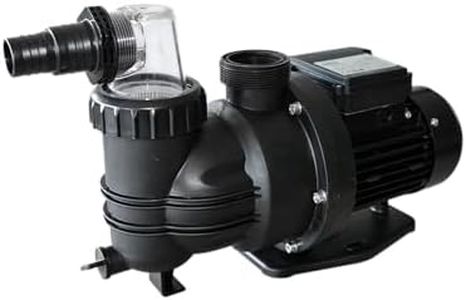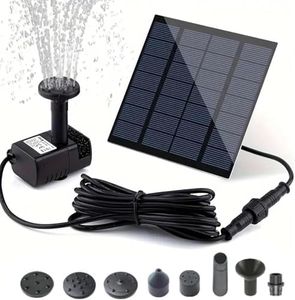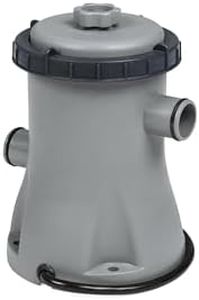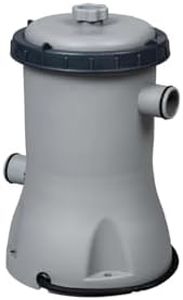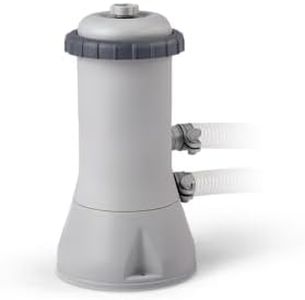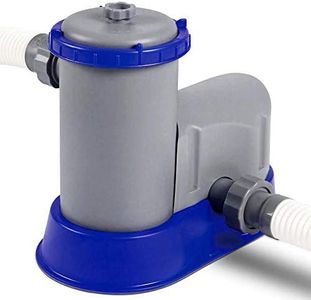We Use CookiesWe use cookies to enhance the security, performance,
functionality and for analytical and promotional activities. By continuing to browse this site you
are agreeing to our privacy policy
10 Best Pool Pumps
From leading brands and best sellers available on the web.By clicking on a link to a third party's website, log data is shared with that third party.
Buying Guide for the Best Pool Pumps
Choosing the right pool pump is vital for keeping your swimming pool clean, safe, and comfortable. The pump circulates water through filters and sometimes heaters or chlorinators, so picking a pump that fits the size and needs of your pool will help you keep up with maintenance without overspending on energy. Understanding key specifications can make this choice easier and ensure you have a pump that fits your lifestyle and pool type.Pump Flow Rate (Gallons Per Minute or GPM)The flow rate tells you how many gallons of water the pump can move in one minute. This matters because your pump needs to circulate all the water in your pool within a certain period, usually 8 hours. Lower GPM pumps suit smaller pools or less frequent use, while higher GPM pumps are better for larger pools or faster cleaning. To choose the right flow rate, calculate your pool’s total water volume and figure out how quickly you want it to circulate. If you have water features or a spa attached, you may need a pump with a higher flow rate.
Pump Horsepower (HP)Horsepower refers to the power of the pump's motor. Higher horsepower means more strength to move water, but that doesn't always mean better—too much power for a small pool wastes energy and could cause plumbing issues. Small residential pools often do well with 0.5 to 1 HP, mid-sized pools use around 1 to 1.5 HP, and larger or commercial pools may require 2 HP or more. Align your pool size and any extra features (like waterfalls) with the pump’s horsepower to ensure efficient performance.
Single-Speed vs. Variable-SpeedSingle-speed pumps always run at one speed, while variable-speed pumps can be adjusted to run at different speeds. Variable-speed models are more energy-efficient because you can run them slower for basic filtration and faster for cleaning or running water features. Single-speed pumps are less expensive upfront but often use more electricity. If you want quieter operation and lower energy bills, consider a variable-speed pump. Your choice depends on your desire for flexibility, potential energy savings, and whether you need to meet local energy regulations.
Pump Compatibility with Pool TypeNot all pumps are suited for all types of pools. Inground pool pumps are usually stronger and designed for more robust use, while above-ground pool pumps may be simpler and less powerful. Also, saltwater pools need pumps with corrosion-resistant materials. Always pick a pump specifically designed for your type of pool, and if you have a saltwater system, check that the pump parts can handle salt exposure.
Pump Basket SizeThe pump basket catches leaves, bugs, and debris before they reach the filter. A larger basket means you won’t need to clean it as often, which is convenient if your pool is near trees or is frequently used. If you want easy maintenance and have a lot of debris to deal with, look for a pump with a bigger basket. Otherwise, a standard-size basket can be enough for pools in cleaner, less leafy areas.
Noise LevelHow loud a pump is can be important, especially if your pool is near where you relax or entertain. Variable-speed pumps tend to be quieter because they can run at lower speeds most of the time, but some single-speed and dual-speed models are quieter by design as well. If noise matters to you, look for pumps that advertise low sound output, and check user reviews for real-world feedback.
Energy EfficiencySome pumps are designed to use less electricity, which is better for the environment and your utility bills. Features like variable-speed motors and energy-efficient certification are good indicators. If your primary concern is lowering ongoing costs and environmental impact, prioritize pumps with high energy efficiency ratings.
